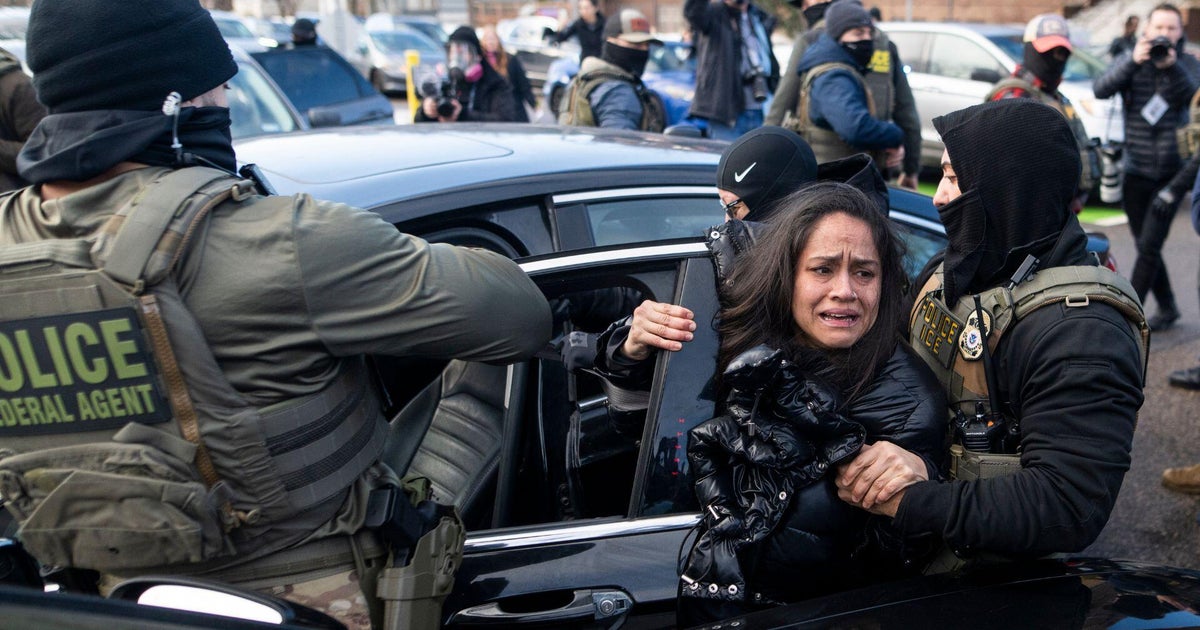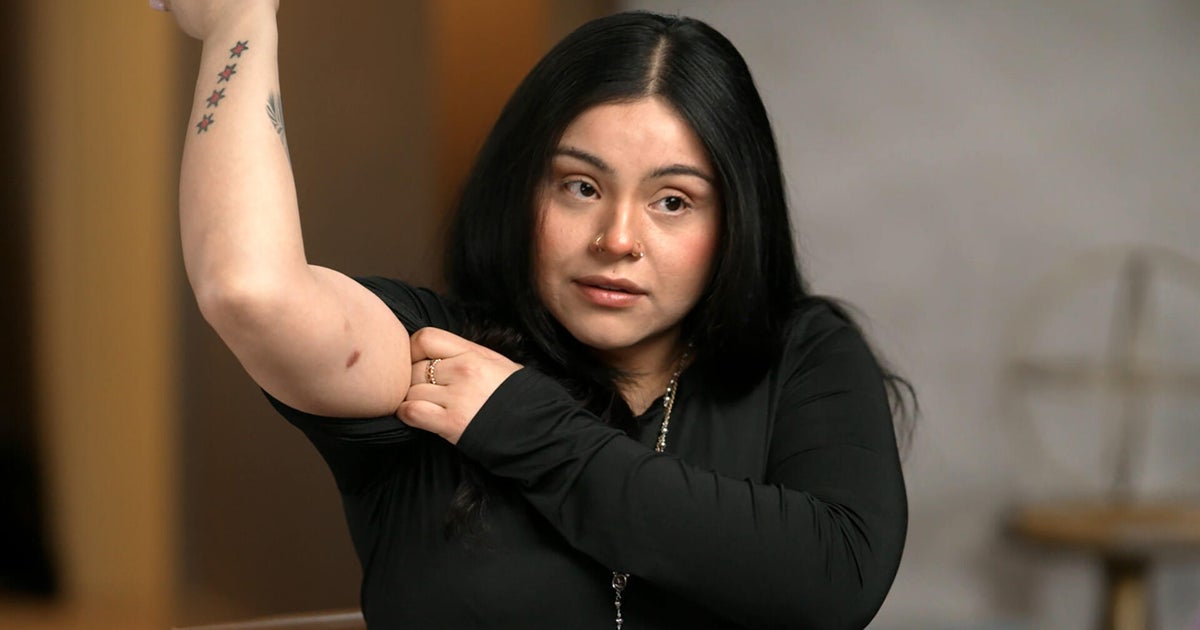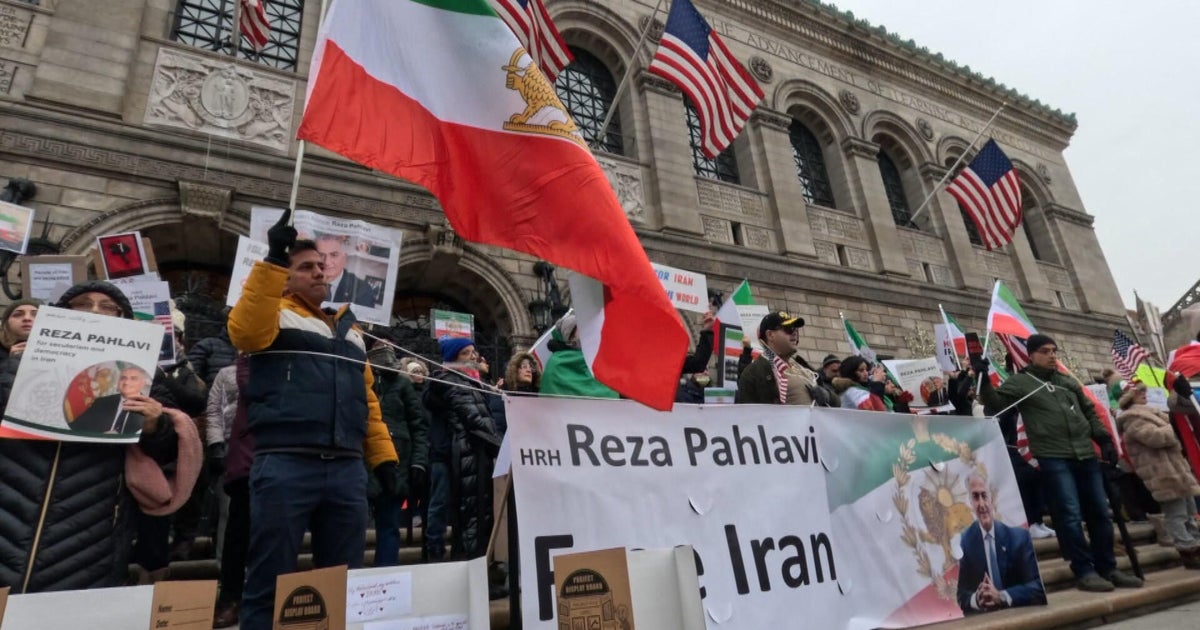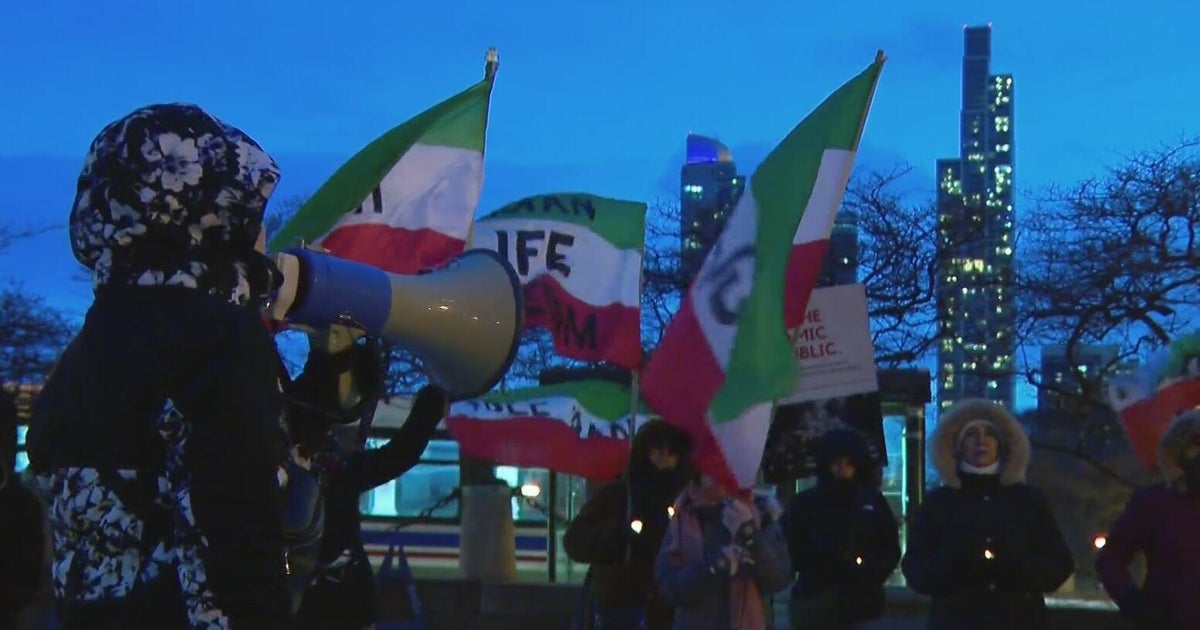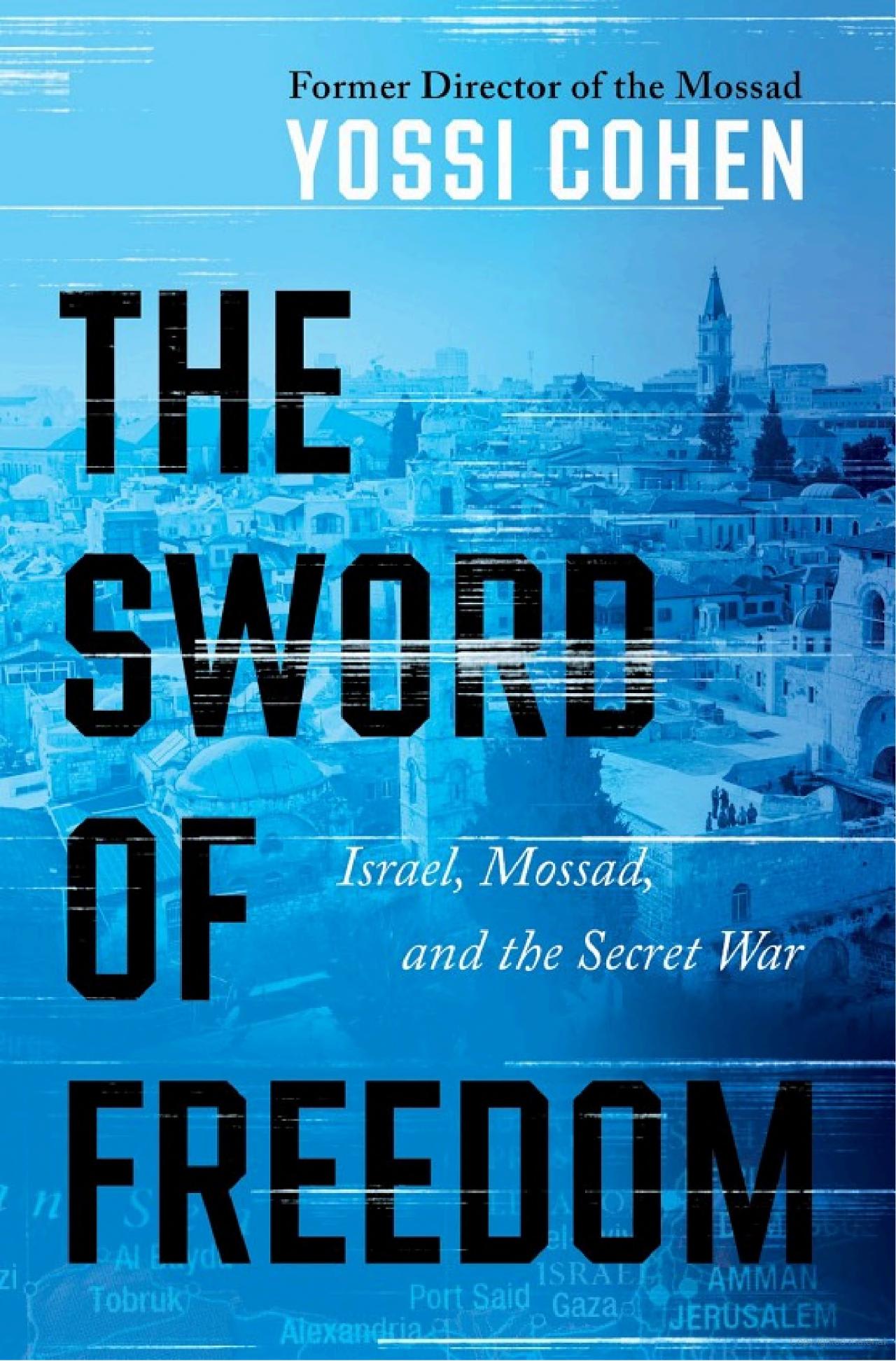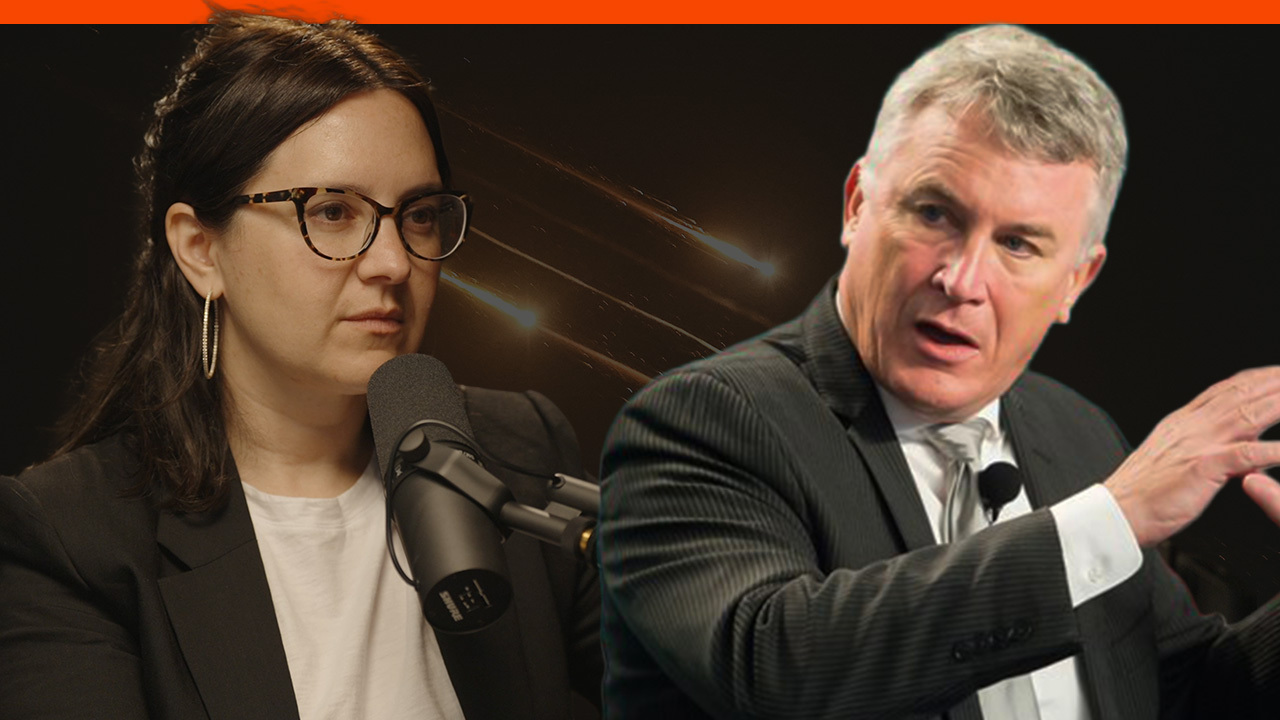How Hezbollah's losses have weakened Iran's power and influence
On Sept. 17, almost a year into an escalating conflict with Israel, militants in the Iranian-backed terrorist group Hezbollah heard an urgent ringtone call out from their model AR-924 pagers.
They had no idea that the devices they pulled out of their pockets were bombs.
After the Israeli intelligence agency Mossad detonated the pagers, and walkie-talkies that had also been rigged with explosives, around 3,000 people were injured, some blinded or severely maimed. About 30 people were killed, including two children.
A recently retired Mossad agent, speaking with 60 Minutes correspondent Lesley Stahl under an alias, "Gabriel," said killing Hezbollah militants wasn't their primary goal: they wanted to send a message.
"Those people, without hands and eyes, are living proof, walking in Lebanon…of our superiority all around the Middle East."
Ten days after that attack, a massive Israeli airstrike pounded southern Beirut, assassinating Hezbollah's leader, Hassan Nasrallah. Other high-ranking Hezbollah commanders and officials were also killed by Israeli forces within just over a week.
"And once that happened, pretty much the entire organization, Hezbollah, kind of imploded," Stahl explained.
In an interview with 60 Minutes Overtime, Stahl discussed the Israeli-Hezbollah ceasefire, the apparent diminished power of the Iranian regime after Hezbollah's decimation in Lebanon, and shortly thereafter the fall of Syria's President Bashar al-Assad.
Ceasefire
The day after Hamas attacked Israel on Oct. 7, 2023, Hezbollah militants rained rocket fire on Israeli towns near the border of Lebanon.
What followed was over a year of escalating combat. Israeli air strikes hit parts of Beirut and southern Lebanon. Anti-tank missiles and rockets were fired into Israel by Hezbollah militants.
But in November 2024, after 14 months of intense fighting, Israel and Hezbollah agreed to a ceasefire brokered by the United States and France.
Despite cross-border fire and accusations of ceasefire violations on both sides of the conflict, the hostilities have largely ended.
In the first week of December 2024, 60 Minutes' Stahl traveled to northern Israel, to a town called Shtula, where Lieutenant Colonel Jordan of the Israeli Defense Force showed Stahl homes that had been destroyed by Hezbollah.
Stahl asked Lt. Col. Jordan if the ceasefire between Israel and Hezbollah was still holding.
"The state of Israel's committed to upholding the ceasefire. Having said that, we have the right to use force to eliminate threats or violations," he said.
Lt. Col. Jordan told 60 Minutes that Hezbollah had fired shells into Israel the day before and IDF forces had responded "very, very sharply to this attack."
Stahl asked what a violation of the ceasefire looked like, in the opinion of the Israelis.
"Movement of men and material in a manner that threatens the civilian population, we're going to attack," he responded.
Both Israel and Hezbollah have accused each other of violating the ceasefire since they entered into the agreement.
During the first weeks of the ceasefire, Hezbollah fired projectiles into Israel and Israel conducted airstrikes against targets it said had committed violations of the agreement.
In December 2024, Raghida Dergham, a Lebanese American columnist and executive chairman of the Beirut Institute, told Stahl in an interview that the citizens of Lebanon believe the ceasefire would continue to hold.
"The ceasefire is holding… everybody is hoping that it will be lasting and believes it will be lasting," she said.
According to the ceasefire terms, the Lebanese government is required to take back control of southern Lebanon, where Hezbollah has maintained a military presence since the 1980s.
"The Lebanese did not want Hezbollah to stay in control of the South… every now and then, they decide they want to take the country to war," Dergham told 60 Minutes Overtime.
"What Lebanese want now is for the Lebanese Army to take over, to be in control in the South, and beyond."
The terms also require that the Lebanese government prevent Hezbollah from conducting military operations against Israel, and to dismantle any weapons that they find.
While 60 Minutes was in Shtula, Israel, Lt. Col. Jordan said some Israeli residents felt the area was safe enough to come back to their homes and check for damage. But the town was still mostly empty.
On the other side of the border, an estimated one million Lebanese citizens were displaced due to the fighting in southern Lebanon. Many returned home after the ceasefire, despite safety concerns.
The Israeli government advised some Lebanese citizens to avoid returning to specific areas in southern Lebanon.
During the conflict, Israeli air strikes turned entire buildings and streets in southern Lebanon into rubble. Many Lebanese civilians, including children and healthcare workers, were killed in these air strikes over the 14 months of fighting.
"Civilians were killed. Civilians were driven out of their homes," Dergham told Stahl.
"Even the Lebanese who hated Hezbollah… [were] horrified by the extent of damage that's happened to our brothers and sisters in the south of Lebanon."'
Israeli Lieutenant Colonel Jordan of the IDF said some villages were seized by Hezbollah militants and used as "military assets" to store weapons, and that they had been destroyed by the Israeli forces.
The IDF estimates it has destroyed about 80% of Hezbollah's weapons.
Lt. Col. Jordan said the Israeli forces will not allow Hezbollah to regroup and return to its status as a powerful, aggressive fighting force.
"We've degraded their arsenal, their capabilities, but they're still a significant fighting force," Lt. Col. Jordan told Stahl.
"We will not let them get back to where they were before this past September…it's not going to happen."
Hezbollah and Iran
Sima Shine is a former Mossad analyst and current director of the Iran and the Shi'ite Axis research program at the Institute for National Security Studies in Tel Aviv.
She told 60 Minutes that Hezbollah has been "defeated to a certain degree" and that the assassination of its head Nasrallah, and other leadership figures, was a devastating blow.
"They are a completely different organization. They don't have the leadership," she told 60 Minutes in an interview.
"And the leadership is not only Nasrallah. It's the whole people around him, going with him, 30 years together. …[they're] not capable of organizing themselves the way that they've been before."
Lebanese American columnist Raghida Dergham told Stahl she also sees the pager operation as a significant factor in the undermining of Hezbollah, especially when the Nasrallah assassination, that came right after, is considered.
"It absolutely broke the backbone of the Hezbollah operatives… I think [the Israelis] had a very good idea of what they were doing in that," she told Stahl.
Retired Israeli intelligence analyst Sima Shine said the organization still lives on in other ways. Importantly, they will continue as a political organization in Lebanon's government, with ministers in the Council of Ministers and MPs in Lebanon's parliament.
Shine said the party became less popular after the pager attack and the group's decision to bring Lebanon into a war with Israel, which was perceived by its critics as a political priority of Iran and not necessarily of the Lebanese people.
"At the end of the day, it's a party… [but] their strength today is completely different in the political sphere," she told Stahl.
"Everybody that is opposing Hezbollah believes that Hezbollah is actually fulfilling [the] orders of Iran and not the interest of Lebanon."
Dergham agrees that the Hezbollah political organization is still "powerful, but not as powerful" as one of two representative parties of the Shiite Muslim community.
"So, they are weakened, but they're here… we want them to reinvent themselves to be part of the new Lebanon," she told Stahl.
Both Shine and Dergham agree that the proxy war strategy Iran has pursued with Hezbollah for decades, using it as an apparatus for its own national security and influence in the Middle East, is failing.
"The broader, strategic picture is a huge failure of the whole strategy that was built in the last two, three decades," Shine told Stahl.
"Everything they have planned… to keep the world far away from Iran's territory, actually failed."
Dergham said the recent fall of former Syrian President Bashar al-Assad, an ally of Iran who used Hezbollah fighters to stay in power, was a catastrophe for Iran and Hezbollah.
Since the rebel group Hay'at Tahrir al-Sham (HTS) seized control of Syria, Hezbollah has been cut off from the country, an important military position and training ground.
Additionally, they've lost access to a critical corridor in Syria that Iran uses to supply them with weapons and material.
Dergham told Stahl that Hezbollah's losses in Lebanon and Syria have weakened Iran "tremendously," and that their proxy war strategy is not working.
"It has to review its raison d'etre. It cannot use proxies anymore. And that will change the face of the region."
The video above was originally published on December 22, 2024 and was produced by Will Croxton. It was edited by Matthew Lev. and Jane Greeley was the broadcast associate.
Photos and video courtesy of Getty Images, Storyful and AFP.
